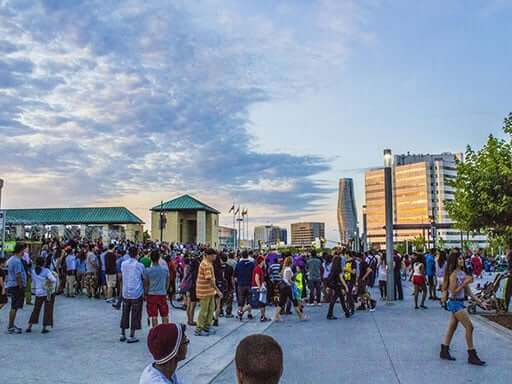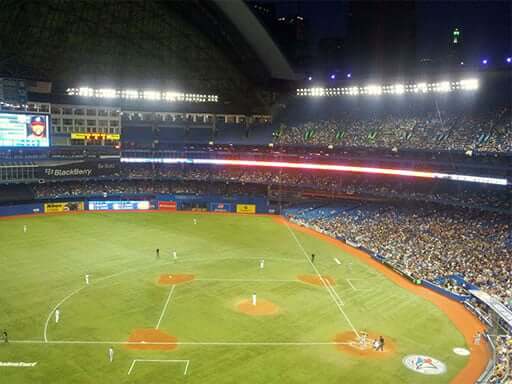Mississauga is an interesting, vibrant city with lots to offer residents. In fact, with a population of just over 700,000, it's the sixth-largest city in Canada. Neighbouring Toronto, it forms part of the GTA (the Greater Toronto Area), as well as Peel Region (comprised of the municipalities of Mississauga, Caledon, and Brampton). Here's some key information to consider when moving to Mississauga.
Pros and Cons of Living in Mississauga
Pros of Living in Mississauga
- Safe city. Mississauga is regarded as one of Ontario's safest cities!
- Schools. Good school system and higher education opportunities.
- Recreation. There is no shortage of cultural activities, restaurants, and parks
- Culturally diverse. Diverse neighborhoods make the city welcoming and exciting!
Cons of Living in Mississauga
- Cost of living. Mississauga has become increasingly more expensive as space is at a premium.
- Public transportation. No subway system predominantly buses used for public transport.
- Competitive housing market. Housing here can be expensive and highly competitive.
Best Neighborhoods in Mississauga

While some people dismiss Mississauga as only a massive suburb of Toronto, it's a city in itself with its own unique personality and attractions. Likewise, it has a surprising array of distinct neighborhoods, each with its own character. Let's explore some of Mississauga's most desirable neighborhoods:
Port Credit
Set along Lake Ontario, this coveted neighborhood offers lakeside living and, as Mississauga's oldest area, it has a unique historic character. However, it's expensive with average homes costing over $1,000,000.
Erin Mills
This is one of the best places to live in Mississauga for families thanks to lots of mature trees, nearby parks, and biking trails. Homes come in a variety of price points and average at $763,075.
City Center/Downtown
The City Center is ideal if you're looking for a condo and want to be at the center of it all. There's a great selection of shopping, restaurants and cultural activities. An average condo in City Center costs $452,477.
Streetsville
Known as "The Village in the City," Streetsville is another of Mississauga's quaint historic districts, with older homes and a nice sense of community. Good for all ages and many income brackets with homes averaging $761,232.
Cost of Living & Housing in Mississauga
While once an affordable city, especially popular with commuters looking for an alternative to high-priced Toronto, Mississauga has become increasingly more expensive as space is at a premium in a city that doesn't have much more room to spread.
Housing in Mississauga is one of the most expensive in the province of Ontario, with demand generally exceeding supply. The average cost of a home is a hefty $804,584. The City of Mississauga is aware of the problem and is attempting to come up with affordable housing policies in the future. Because of high demand, rents can range from approximately $1,000 to $1,402.94 a month for a one-bedroom apartment.
The price of housing is matched by an equally high cost of living. Overall, once you factor in things like groceries, transportation, cable, and hydro, you can expect to budget at the very minimum $2,133.60 a month for one person to live in Mississauga.
Mississauga Job Market

While the cost of living may be high in Mississauga, the good news is that according to a report by Express Employment Professionals, the city has the 6th hottest job market in Canada. Between 2016 and 2018, Mississauga also experienced the greatest business growth in the Peel region, with an impressive increase of 10.5%. The average salary is $57,000, with popular jobs being Operations Manager, Administrative Assistant, and Project Manager.
Taxes in Mississauga
Figuring out how much you'll owe in income tax can be complicated as it is a progressive tax rate and depends on how much you make. Overall for federal income tax, you'll owe:
- 15% on the first $48,535 of taxable income, plus
- 20.5% on the next $48,534 of taxable income (on the portion of taxable income over 48,535 up to $97,069), plus
- 26% on the next $53,404 of taxable income (on the portion of taxable income over $97,069 up to $150,473), plus
- 29% on the next $63,895 of taxable income (on the portion of taxable income over 150,473 up to $214,368), plus
- 33% of taxable income over $214,368
Keep in mind that you'll also have to pay provincial tax (read here for info) and a Harmonized Sales Tax of 13% and property tax (if you own a home), which varies wildly based on the size and location of your property.
Schools, Colleges and Universities
Overall, Mississauga has excellent public and Catholic schools. As Canada is an officially bilingual country, the city also offers publicly funded French-language schools.
Though the city doesn't have any of its own universities, it does host a satellite campus for the world-class University of Toronto. The satellite campus offers a wide range of undergraduate, graduate, and continuing education degrees. Sheridan and Lampton are community colleges with satellite campuses in Mississauga.
Transportation in Mississauga
Though Mississauga does not have its own subway system, it does, however, have an extensive bus system known as MiWay. MiWay covers over 90 routes with a fleet of more than 450 fully accessible buses, 15 of which are hybrid electric buses. There are also numerous airport bus routes to nearby Toronto Pearson International Airport, including an express bus.
Restaurants
Much like Toronto, Mississauga is a multicultural city with an incomparable mix of amazing restaurants that reflect the city's mosaic of cultures. There are thousands of eateries to choose from but some of the best foodie neighborhoods are Streetsville (for locally owned, one-of-a-kind restos), Hurontario (a cornucopia of ethnic cuisine), and Port Credit (casual to upscale cuisine). Food lovers will also want to check out the recently opened Food District at Square One.
Sports, Activities, and Events

Whether you're passionate about sports, concerts, outdoor activities, or shopping, there's always something to do in Mississauga.
Sports
Unfortunately, Mississauga doesn't have any of its own major-league sports teams but luckily, you can easily cheer on a Toronto team like the Blue Jays and Argonauts at the Rogers Centre or the Maple Leafs and Raptors at the Scotiabank Arena in nearby Toronto. The city does have various sports clubs, like the Mississauga Sports and Social Club that runs amateur, adult leagues for sports like hockey, basketball, and more. The city itself also oversees a strong sports and recreation program for residents.
Outdoor Recreation and Parks
Celebration Square is an outdoor square that features concerts, cultural festivals, movie nights, and a skating rink in the winter.
The city also offers a wealth of wildlife-rich parks, many with biking, jogging, and hiking trails. Some of the locals' favorites include the Rattray Marsh Conservation Area, Riverwood Conservancy, and Kariya Park, which even has Japanese-inspired gardens.
Culture
Cultural amenities include the Art Gallery of Mississauga, the Mississauga Symphony Orchestra, and the Living Arts Centre.
Shopping
While there are lots of chain stores and locally-owned clothing boutiques and shops, Mississauga is especially famous for its mega malls, including Square One Shopping Centre, (the largest mall in Ontario and the second largest in Canada), Erin Mills Town Centre, and Heartland Town Centre.
Is Mississauga Safe?
For a metropolis of its size, Mississauga is one of Canada's safest cities. In a 2018 article by prestigious MacLean's Magazine, the publication reported that Mississauga had a Crime Severity Index of 44 and a Violent Crime Severity Index of 54, compared to a nationwide average of 70 and 75, respectively.
Moving Tips for New Residents
Whether you're coming from overseas or from a nearby province, finding a new place to live in Mississauga - be it an apartment or a home - is likely to take some time.
If you're in need of short-term storage while you settle into your new abode, we recommend finding a secure storage facility to keep your belongings safe. Whether you need to declutter to make some space or store large pieces of furniture, Bluebird Self Storage offers modern and convenient storage solutions to fit your needs.
About the Author






















